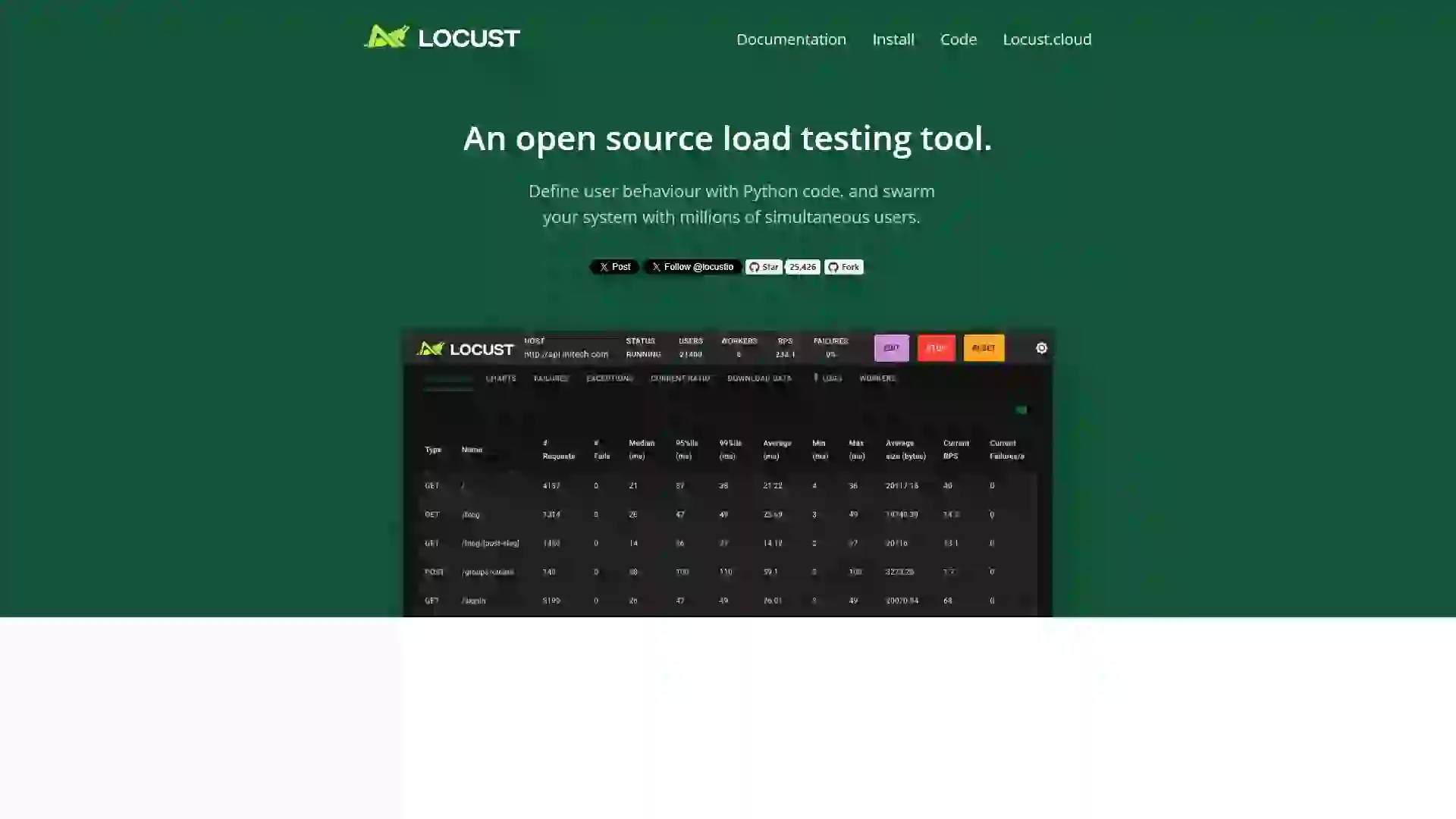Locust
📝 Summary
Locust is a powerful, open-source load testing tool specifically designed for developers. It enables the simulation of user behavior through Python scripting, making it an ideal solution for performance testing in high-concurrency environments.
✨ Features
- Highly Extensible: Define user behavior via Python scripts, providing unparalleled flexibility and ease of customization. This feature makes it perfect for handling complex testing scenarios.
- Distributed Load Testing: Locust supports distributed testing, allowing you to simulate millions of concurrent users. This capability is essential for large-scale system testing and ensures comprehensive performance evaluation.
- Real-time Monitoring and Analytics: Equipped with real-time monitoring and statistical functions, Locust helps developers quickly identify performance bottlenecks and optimize system performance.
- Open Source and Community-Driven: Completely free and open source, Locust benefits from an active community and comprehensive documentation. It is suitable for both individual developers and enterprises seeking cost-effective performance testing solutions.
🎯 Use Cases
- Web Application Performance Testing: Locust excels in testing web applications under high-concurrency conditions, ensuring they can handle real-world traffic.
- API Stress Testing: Simulate a large number of API requests to evaluate the stability and response speed of backend services.
- Microservices Architecture Testing: Ideal for performance testing of distributed systems, Locust verifies the load capacity of individual services, ensuring seamless operation in a microservices environment.
⚙️ Technical Considerations
- Learning Curve: While Locust offers extensive capabilities, it requires a basic understanding of Python programming. This may pose a challenge for users without a development background.
- User Interface: Compared to commercial tools, Locust features a simpler interface. It lacks advanced visual analysis features but prioritizes functionality and customization.
📚 Documentation
Locust is backed by comprehensive documentation and an active community, ensuring you have the resources needed to get started and troubleshoot any issues.
❓ FAQ
Q1: What are the main benefits of using Locust?
A1: Locust offers unparalleled flexibility through Python scripting, supports distributed testing for large-scale systems, and provides real-time monitoring to quickly identify performance issues. It is also completely free and backed by an active community.
Q2: How does Locust compare to other load testing tools?
A2: Unlike many commercial tools, Locust is open source and free, making it accessible to a wide range of users. Its Python-based scripting allows for extensive customization, but it may have a steeper learning curve for non-developers. For those familiar with Python, Locust provides a powerful and cost-effective alternative.
Q3: Is Locust suitable for beginners?
A3: Locust is primarily designed for developers with some Python knowledge. While it may be challenging for absolute beginners, its extensive documentation and community support can help ease the learning process. For experienced developers, Locust offers robust features and scalability.
